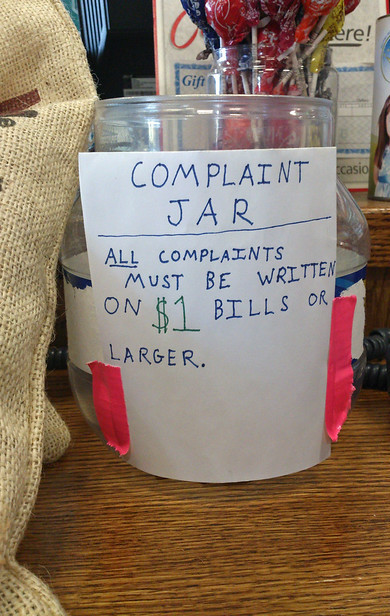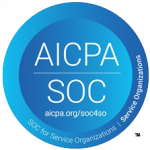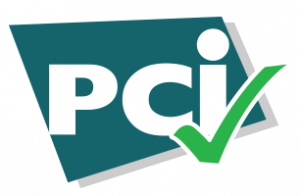March 6, 2023
Staying on top of Best Practices in Accounts Receivable can be challenging in today’s ever-changing healthcare landscape. The Covid-19 pandemic and the potential for future public health emergencies created a need for the Healthcare Financial Management Association (HFMA) and ACA International-Association of Credit and Collections Professionals to revisit and revise the framework for Best Practices originally established in 2014. Based upon their report, the following recommendations were established in 2020.
Preservice/Discharge Patient Education and Engagement
Early communication is key in forming connections with patients and establishing a plan for payment of their account.
- Whenever possible, price estimates for non-emergency services should be made available to the patient when the service is scheduled. For emergent services, the patient should be provided with an estimate as soon as it is practical to do so.
- Patients should be made aware of the account resolution process and the provider’s policies regarding account resolution.
- Providers should collect all information necessary from insured patients in order to provide the patient with an accurate estimate of their financial responsibility. All sources of potential coverage should be considered, including public assistance programs, workers compensation/work related injury, and coverage enrollment process for uninsured patients.
- Financial counseling should be made available as well as options for payment plans.
- A clean and easy to understand bill should be provided along with information on where to direct questions and resolve disputes.
- Consent to contact the patient and how they prefer to be contacted should be obtained and the patient should be informed on how to update those preferences.
At Revco Solutions, we understand the importance of a proactive approach to settling patient accounts. Our Early Out Program is designed to help healthcare providers work with patients to satisfy their financial responsibility quickly and easily.
Post discharge Resolution Process
Once the account is discharged, the following steps are recommended:
- Screen the patient’s account and ensure that all sources of potential coverage have been considered.
- Send a clean and easy to understand bill to the patient for their portion. If the patient is granted 100% financial assistance or they pay the full amount due, no further action is necessary.
- If a balance remains, other means of resolving the account should be considered. This could include resolving the account internally, sending the account to early-out business affiliates, or administrative write-off of the account. If the account is fully satisfied at this time, the process stops here.
Screening accounts and ensuring that all potential coverages have been considered can be time-consuming and cumbersome. Revco Solutions can implement a timely insurance denial management strategy and save healthcare providers valuable time and money in collecting insurance payments that have been previously denied.
Next Steps
If the account is not resolved at this point and the account is considered a bad debt risk, it can be sent to a professional collection agency such as Revco Solutions. Our highly trained team will attempt to secure payment via methods that will reflect the values of patient service you maintain in your own organization. We use a compassionate approach to help patients satisfy their financial obligations, which not only achieves liquidation results for our clients, but also helps to maintain a positive patient-provider relationship. Contact Revco Solutions today to learn more about our services.
December 22, 2022
Below we discuss how the accounts receivable industry looked in 2022.
According to High Radius’ “The State of CFO’s Office – A Mid-Market Perspective 2022” report, of the Chief Financial Officers (CFOs) interviewed:
- 33% will automate their invoicing.
- 33% will automate cash applications and reconciliations.
- 32% will automate their collections.
- 63% said that AR automation was important to keep pace with their competitors, avoid obstacles to their ability to deliver customer service, limit the potential for AR teams to work remotely, and hurt their ability to attract and retain talent.
Justin Bentley of Citizens Bank (interviewed by Orbograph) identifies scale, revenue growth, and gross margins as the three key factors/drivers that investors use to evaluate companies in healthcare– Revenue Cycle Management.
Commerce Healthcare, heavily quoting CAQH’s 2020 and 2021 Indexes, found that:
- 26% of health plans have not implemented fully electronic payments.
- 57% plan adoption of electronic remittance advices.
- Only 22% of health plans receive attachments in a fully electronic manner.
- 8% of hospitals and health systems have what they consider to be a fully optimized enterprise resource planning (ERP) system in place today.
- Real-time healthcare bill payments and disbursements are projected to reach over 70 million in 2022. this increase is due to its convenience, efficiency, and safety.
CAQH’s Reports Also Noted:
- As remote work increased, many medical and dental staff became more reliant on the use of electronic transactions to conduct business.
- Spending associated with medical eligibility and benefit verification increased 16 percent and remains the highest among the transactions, accounting for almost half ($18.3 billion) of the total annual medical spend ($37.4 billion).
- The increase in automation resulted in time savings for medical providers. Providers saved, on average, 16 minutes by conducting a prior authorization.
Accounts Receivable (A/R) status has moved from calls to portals.
Healthcare Financial Management Association
- About 23 million Americans have unpaid medical debt.
- Days in receivable and bad debt will increase.
Prognocis adds that late payments are a fact with medical accounts receivable, with 93% of companies reporting they deal with late payments.
Other Statistics:
- Receivables lose significant value over time, up to 80% of their original value if overdue past 90 days.
- On average, companies write off 1.5% of their receivables as bad debt.
- PWC found that 68% of CFOs surveyed planned to increase their investment in digital transformation by the end of 2022.
- According to Mastercard’s Business Payments 2022 report, 50% of B2B payments are still made via paper check.
- 66% of businesses have adopted electronic payment acceptance solutions since the start of COVID-19.
- More than 80% of businesses have changed their A/R processes since the start of the COVID-19 pandemic.
- 64% of companies have shifted away from physical invoices and started utilizing electronic invoice presentment and payment (EIPP) capabilities.
- Days in receivables are expected to increase by 10%.
- More healthcare organizations are using chatbots to engage patients, customers, and support teams.
December 4, 2019
Year after year, studies are done about the number of complaints people have about businesses. Time and time again, these quantifiable measurements are taken and used to determine their compensatory worth through bonuses, advancement, or retention.
What those studies don’t examine nearly as often is why complaints are happening. As one blog post observed, “Companies are adopting upgraded programs to handle customer complaints, but unfortunately, they were doing all the right things the wrong way (e.g., complicated automated response menus, no empowerment to customer care agents, understaffing, etc.)”
Consequently, when customers can’t get through to agents, they turn to social networks to complain and have their voices heard. “The viral effect of social venting can be extremely detrimental to your company’s reputation,” as the post pointed out.
PRC (Revco Solutions) understands the vital importance of reputation management and the delicate balance of maintaining a positive online presence with your consumers. The key to reducing complaints is understanding why they occur in the first place.
Communication
Improper communication to a consumer can lead to a complaint. Conversely, improper communication once a complaint is received can lead to increased frustration and take you further from resolution. One of PRC (Revco Solutions)’s Corporate Behaviors is: “Communicate to be understood. Know your audience. Write and speak in a way that they can understand. Use the simplest possible explanations.”
Setting Realistic Expectations
Consumers need honesty and transparency. Setting realistic expectations can help with this. If you, or your representatives, are setting unattainable goals, deadlines, or metrics, everyone loses. Managing expectations is getting ahead of and helping to control the propensity of complaints.
Stay on the Cutting-Edge of Technology
Technology is a double-edged sword. However, when deployed and used correctly can be a useful tool for reducing and responding to complaints. Consumers are more tech-savvy than ever, and they are looking for a tech-rich experience. Invest in technology and give that experience they crave and expect. Decreased hold times, interactive websites, mobile capability, and a strong online presence are all part of building credibility and reducing consumer frustrations.
These three tenants sound simple when you’re reading them in a blog post. Yet, companies often still struggle with them. Sometimes it’s because team members don’t feel empowered or don’t have the right tools. If you hear a lot of complaints about your debt or payment collection team, dig deeper to find out if the problem is something they are doing (or not doing) or if your work environment is part of the challenge.
If you have questions about collections or need help recovering payments, contact us to get started.
July 5, 2016
Stoplights slow us down. If it weren’t for those red lights (always red when you’re running late!), we’d all get to work much faster in the morning.
Calling on those who owe your company money sometimes feels like a series of stoplights. You make the call, that’s a green light. But no sooner do you get going then you get a yellow light: the person you need to speak with isn’t around, so you leave a message. Maybe it’s a red light: you reach the person, but he/she can’t pay right now.
Michael Morillo, PRC (Revco Solutions)’s Training Manager, has been with PRC (Revco Solutions) for almost 15 years and enjoys training new employees in addition to continuous process improvement among our collections staff. We recently sat down with Michael to talk about these payment barriers and how to work around them.
Morillo said it is more important to listen to what the consumer isn’t saying rather than what they are saying.
“When a consumer says they ‘can’t pay you now,’ that doesn’t at all mean he or she won’t pay this bill,” he said. “It could mean a lot of things: he can’t pay this today, she needs to wait until payday, he is busy and needs a call back, or she wants more details before securing payment.”
Morillo emphasized that to truly command control of a conversation, a collection agent has to listen, effectively.
“Listening commands control of these conversations. Lots of people think collection agents are loud and rude — we are here to combat that. Our most successful and effective collection agents truly are the best listeners.”
So even though the stoplights are frustrating, simply by being an empathetic listener it will be much easier to work with the consumer and find a way to get that payment for your business.
What barriers to payment are you finding as you call on consumers who are late with their bills? We’d love to hear your questions and input. Share with us on Facebook or Twitter.
September 18, 2015
The bill is overdue and the collection letter has come back undelivered. The phone is disconnected.
This situation isn’t unusual for the accounts receivable department. Tracking down those with overdue bills is just part of the job. But the longer it takes, the harder it is to contact them, and not just because you’re no longer a priority. People with financial problems often move. Some do not leave a forwarding address.
Your collection process is only as good as information you collect from the very first contact with your customers. It’s surprising how many organizations struggle to recover their A/Rs simply because they do not have current addresses, phone numbers and other information needed to follow up appropriately with customers.
But there is one easy solution to solving collection problems: Get the information up front.
The best time to gather accurate contact information is when someone first becomes your client or customer. Try sending/giving the packet in a welcome package that includes:
- Customer information form
- Financial policy
- Credit card authorization form
- Cancellation policy
- Payment options
- A list of what a customer may need to get started such as any forms of identification or insurance.
- List any collection fees, interest or penalties for non payment, if any.
- Insert language authorizing your business or your agents (such as collection agencies) to contact you regarding your bill with the information provided.
Customers will give you more accurate information when they can take their time to fill out the forms. It removes the excuse that they left their information at home. It shows that your office is organized and will keep their Social Security number and other identifiable information secure.
While it’s not always easy to ask for personal information, doing so up front shows you expect payment and will deter customers who may not have had any intention of paying you. Solve your collection problems by getting the information you need.
August 23, 2015
Got collections? Technology has changed the way you can collect on your accounts receivable. Here are six areas you can use technology to make collecting easier:
1. Customize workflow.
What: Tailors the work strategy for each client.
Example software: Flexible Automated Collection System by Ontario Systems
2. Verify account records.
What: Scrubs old accounts, confirm contact information.
Example software: Acumen by Ontario Systems
3. Trigger alerts.
What: Alerts on accounts if consumer enters the credit system.
Example software:
4. Leave messages on a mobile phone – legally!
What: Comply with the Telephone Consumer Protection Act (TCPA).
Warning: Do not try this on your own.
5. Convenient payment options.
What: Accept payments by phone or online.
Example software: Multiple programs
6. Call monitoring and auditing.
What: Monitor and audit 100 percent of your collection calls.
Example software: CallMiner
November 23, 2010
We’ve noticed in recent months various media outlets featuring news and investigative journalism pieces about an increase in the number of complaints being filed against debt collectors and collection agencies. Just this morning the TV cable news featured a prominent attorney, who often appears on FNC to provide consumers tips on how to recognize illegal debt collection practices. He also advised consumers not to avoid debt collectors.
Various reports have indicated that complaints to the FTC regarding debt collectors have risen from about 95,000 in 2007 to 119,000 in 2009. Given the number of communications initiated by debt collectors, we find this number of complaints is not absurd. It seems common sense though to assume that with unemployment up so high in addition to the number of our citizens who are either underemployed — taking jobs for less money or part-time — we would have an increased volume of collection conversations with the public in general. We cannot with any statistical certainty tell you that the rise in complaints is proportional to the rise in delinquent debt; that would take some serious investigation. However, we can say for certain that there are people we know that, due to our economic realities, are finding themselves on the phone with a debt collector. Many of these consumers have never had such an experience previously.
Some of these news pieces have contained a degree of balance, pointing out that some agencies and the industry as a whole, take efforts to root out harassing practices, including cursing at consumers, calling repeatedly and hanging up either at their home or place of business, and, in extreme cases, calling them awful names. No legitimate and respectable collection agency will encourage or allow such practices within their company or by any of their employees. We certainly do not here. We have every employee on our team sign a commitment to the ACA collector pledge as a part of their employment requirements with us. The pledge reads:
The Collector’s Pledge
“I believe every person has worth as an individual
I believe every person should be treated with dignity and respect.
I will make it my responsibility to help consumers find ways to pay their debts.
I will be professional and ethical
I will commit to honoring this pledge”
The terrible and harassing events featured on nearly all of the news pieces are rare, not the norm. However, if a news organization decides to run a piece on this subject, they, of course, gravitate toward the sensational part of the story; boring stories do not get attention right?
Advice for Those Hearing from Debt Collection Agencies
PRC (Revco Solutions) President Geoff Miller has been a volunteer leader with an organization called the Crossroads Career Network for nearly two years. He has worked closely with people who are dealing with unemployment as they navigate the difficult economy we all face.
When some of the job seekers (whom we affectionately call career explorers) learn that he works for a collection agency, they often ask for advice on how to work with a creditor or a collection agency that is pursuing them for some debt. Mr. Miller thanks them for their willingness to open up about their situation and tries to give them the best advice possible.
“If I sense there is at least a modicum of trust in the situation, I begin to ask them some questions. I ask them about their conversations with collectors or communications in general with the agency,” Miller said. “I ask them about the nature of their debt, of the particular delinquent bill in question and of their finances in general. Often the reality is that some of these good people are making tough decisions about money and they must keep a roof over their heads, feed and take care of their families.”
With each conversation of debt collection advice, there are common points Miller always covers.
- Don’t avoid the collection agency.
- Stay in contact with the agency and your creditors. Keeping the dialog open empowers you and the creditors to help create either or short-term or long-term game plan (depending on the severity of the financial situation). Communication also helps the creditor or collection agency to make more informed decisions, empower you, the consumer, to be in a better position to work with them and eventually resolve the debt.
In our core, as men and women, as mothers and fathers, as employees and business owners, very few of us opened a credit line, financed a purchase, or funded an entrepreneurial business thinking one day we will have more bills than money and it will be so much fun to stick it to our creditors. That’s not the heart of the human spirit, nor is it the core values of the American way.
Yes, there are collectors who behave badly, some very badly and even illegally. Our state and federal government offices have resources in place to help consumers who are legitimately being harassed. Another fact is that is less than 5 percent of consumers in debt call a collection agency back after an attempted contact by letter or telephone. So, consumers in debt need to be willing to swallow some pride when they find themselves in the unenviable position of having more bills than money, and collectors must be trained and prepared to behave and perform in a highly professional and ethical manner when they communicate with consumers. It is a delicate balance of trust that must be maintained by all involved.
Life Happens
Even those with high personal credit scores can at times find themselves contacted by a collection agency. For example, Mr. Miller moved from one state to another in 2008 and overlooked a bill. The creditor either did not or could not take the steps to find their new address and sent the bill to a collection agency. The collection agency found his current address and mailed me a collection notice. I quickly called them, gained the specifics on the bill and paid it. That very same year Mr. Miller received services from a company for some maintenance on my home. The service provider never completed the work properly, and Miller would not pay the bill. He tried to negotiate with the business owner who refused. Six months later, the account was placed with a collection agency. Again Miller responded quickly to them and provided all the documentation regarding the dispute and advised them in writing that he would not be paying. In either case, he never avoided the creditor or the collection agency.
More than ever, when talking to consumers in debt, many collection agencies that are making real efforts to compete and perform with professionalism and high ethics. They are doing so by training their collectors and staff to use a non-combative and consultative approach. This approach is designed to help the consumer explore ways or plans for paying off their debt via other avenues of cash, debt consolidations, short or long-term payment plans, etc. Whether your business currently works with a collection agency plans to expand such use or even begin using one for the very first time, we recommended you ask the agency’s management team how they are working with consumers in debt.
Those of us in the Accounts Receivable Management profession who do our job well know that we are having a positive impact for our clients, for consumers and for the economy as a whole. Various independent studies have been conducted that provide the positive financial impact debt recovery has on the prices of goods and services to businesses and consumer alike.
The reality is that there are some collectors out there who do their job in unfair, unethical, and even illegal ways – but they are the rare exception and not the norm. There are also many consumers in debt who do not communicate with their creditors or the collection agencies. The debt collection process is a two-way street and a relationship that requires professionalism and ethics from everyone involved: creditors, consumers and yes, collection agencies.









